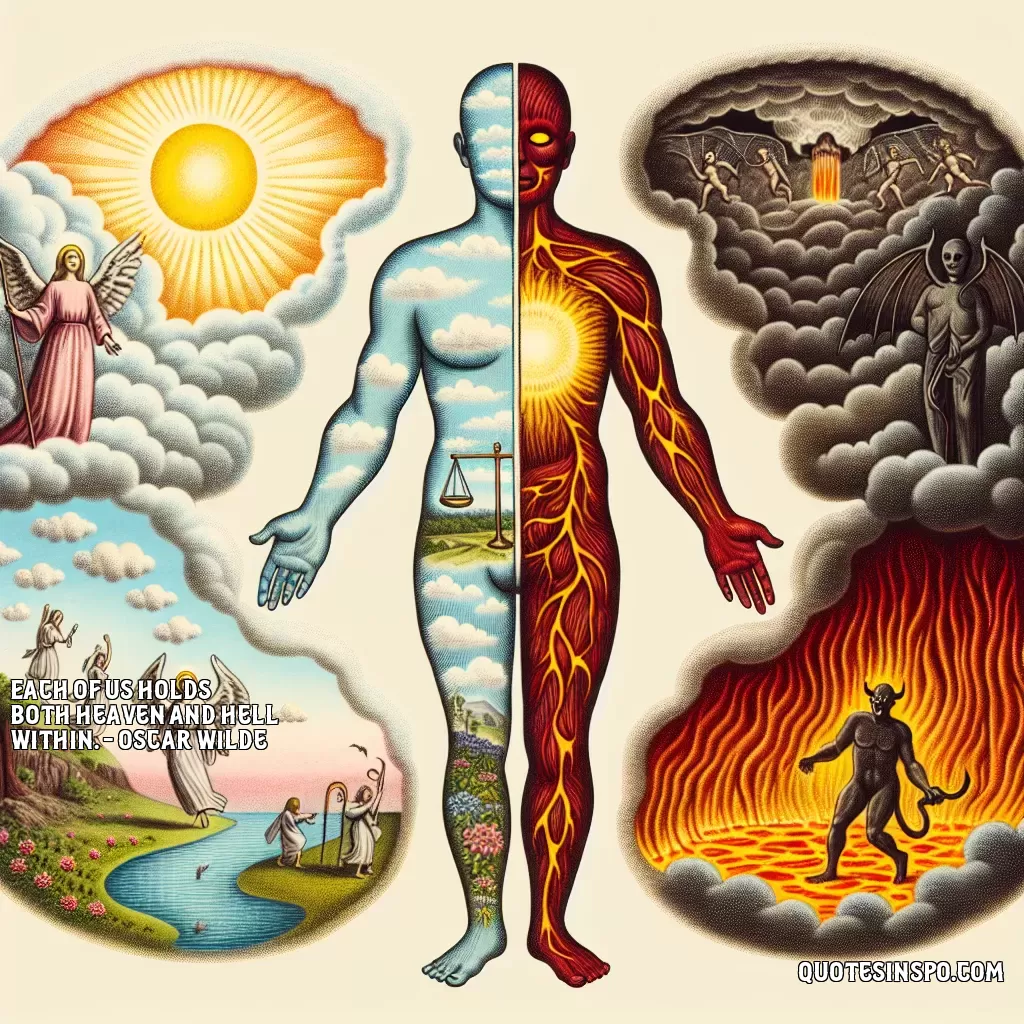
Each of us holds both heaven and hell within. - Oscar Wilde
Oscar Wilde's quote, "Each of us holds both heaven and hell within," encapsulates the complex duality of human nature. On one level, it suggests that the potential for both good and evil exists within every individual. Wilde implies that the conditions of our internal world are not solely shaped by external circumstances but are partly a reflection of our inner choices and states. Heaven and hell can be viewed as metaphors for happiness, peace, and virtue versus suffering, turmoil, and vice, respectively. The quote invites introspection, suggesting that our internal landscape is a powerful determinant of our experiences and actions. Our thoughts, attitudes, and responses to life's challenges contribute to a personal sense of heaven or hell. For instance, cultivating compassion, empathy, and kindness might lead us toward a state of inner peace (heaven), while harboring resentment, anger, or hatred can create inner turmoil (hell). Moreover, Wilde’s words resonate with the idea of personal responsibility and the power of choice. Every day, we navigate countless decisions that can tilt the balance between heaven and hell within us. While external forces can indeed influence us, it is ultimately our responses and interpretations that define our inner experiences. Lastly, the quote can also be seen as a reflection on the human condition itself, recognizing the inherent contradiction and complexity within each person. By acknowledging that everyone possesses both positive and negative traits, we can approach ourselves and others with greater empathy and understanding. Understanding this duality can lead to a more profound self-awareness, encouraging us to foster the positive aspects of our nature while managing the negative.
Quote By: Oscar Wilde
Oscar Wilde was an Irish playwright, poet, and novelist, renowned for his wit and flamboyant style. Born on October 16, 1854, in Dublin, he gained fame for works such as "The Picture of Dorian Gray" and the comedic play "The Importance of Being Earnest." Wilde's brilliant social commentary and exploration of aestheticism challenged Victorian norms, but his career was cut short by scandal, leading to imprisonment for his sexuality; he died in 1900 in Paris.
Bio added on: 2025-02-17 10:10:36